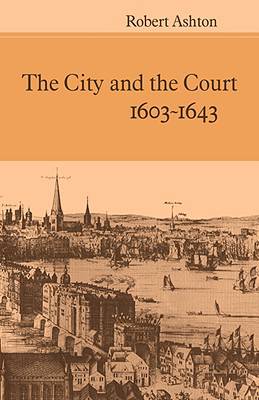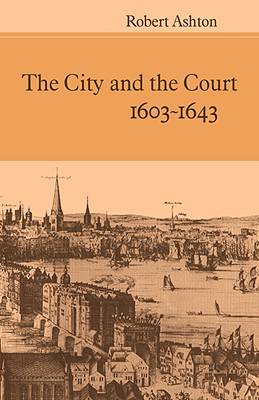
Je cadeautjes zeker op tijd in huis hebben voor de feestdagen? Kom langs in onze winkels en vind het perfecte geschenk!
- Afhalen na 1 uur in een winkel met voorraad
- Gratis thuislevering in België vanaf € 30
- Ruim aanbod met 7 miljoen producten
Je cadeautjes zeker op tijd in huis hebben voor de feestdagen? Kom langs in onze winkels en vind het perfecte geschenk!
- Afhalen na 1 uur in een winkel met voorraad
- Gratis thuislevering in België vanaf € 30
- Ruim aanbod met 7 miljoen producten
Zoeken
€ 60,95
+ 121 punten
Omschrijving
The fact that London was parliamentarian rather than royalist was one of the principal reasons for the defeat of Charles I in the English Civil War. This book reinterprets London's role. It examines the relation of the municipality and of the City fathers as business magnates with both of the early Stuart kings and their parliaments, and explores the business connections of the City with the royal court, concluding that, far from being the natural allies of the king and court as is generally assumed, the City elite had mostly been seriously alienated from them by 1640. Professor Ashton offers an interpretation not only of the City's role in the years before 1640 but also of the reasons lying behind its support for parliament in 1642. It is both a contribution to the debate on the origins of the Civil War and a study in depth of the connection between big business and politics in early Stuart England.
Specificaties
Betrokkenen
- Auteur(s):
- Uitgeverij:
Inhoud
- Aantal bladzijden:
- 264
- Taal:
- Engels
Eigenschappen
- Productcode (EAN):
- 9780521071376
- Verschijningsdatum:
- 28/08/2008
- Uitvoering:
- Paperback
- Formaat:
- Trade paperback (VS)
- Afmetingen:
- 140 mm x 216 mm
- Gewicht:
- 340 g

Alleen bij Standaard Boekhandel
+ 121 punten op je klantenkaart van Standaard Boekhandel
Beoordelingen
We publiceren alleen reviews die voldoen aan de voorwaarden voor reviews. Bekijk onze voorwaarden voor reviews.









